IT’S a bittersweet irony.
Fifty years ago, Imelda Roche broke through the barriers of the misogynistic business world with a revolutionary army of savvy female sales consultants, becoming one of Australia’s richest women along the way.
Along with husband Bill, the pair built a business empire on the back of their Nutrimetics franchise, eventually acquiring the worldwide interests to the cosmetics company in 1991.
Imelda, now 85, empowered thousands of women, primarily homemakers, to chase their own fortunes by direct selling, while at the same time navigating the challenges of being both mother to four children and the face – and brains – of a booming business.
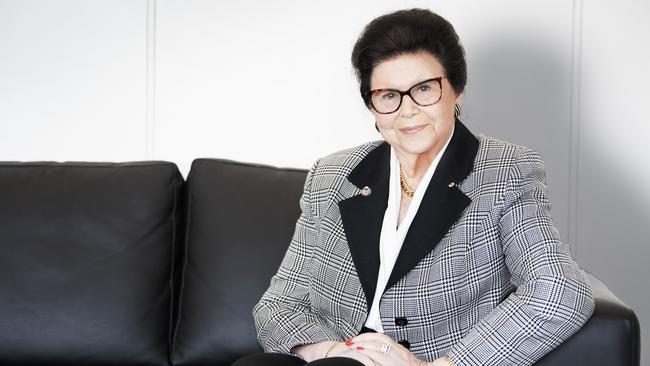
Which is why, more than 20 years after selling their business baby to the Sara Lee Corporation, Imelda is still grieving.
It’s not that she regrets selling Nutrimetics. After all, it was a question of family or business.
And the answer, just as she taught her thousands of proteges across the decades, is always family first.
“I was heartbroken to sell Nutrimetics, I still am,” she says.
“Bill and I bought the Australian franchise back in 1968 and we created something really magical. It was so much more than a business to me, I loved my team. They were family. To this day, I still talk to, work with and help out so many of the women who were part of Nutrimetics.
“At its heart, we were a family business. Bill and I were the ultimate entrepreneurs and we hit on a winning formula. But as our four children grew up, I could see how easily this business blessing could become a curse.
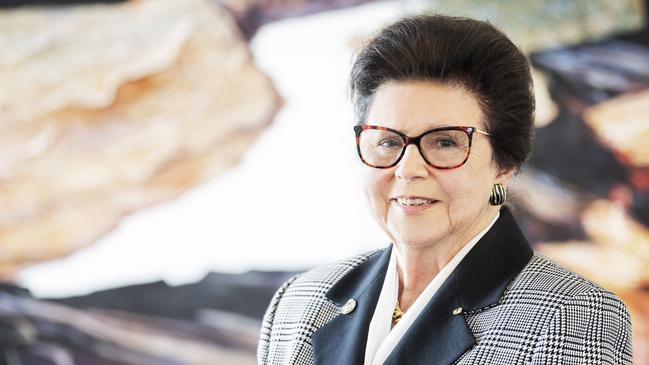
“Nutrimetics was the dream for Bill and me, we didn’t want it to become a nightmare for our children. I didn’t want to hand it over only to be unable to stop myself from meddling. I didn’t want them to feel the pressure of having to carry this business albatross if it’s not their passion. I didn’t want to see them fight over business when they should come together as family.
“Bill had already moved on to other passions, but I still loved Nutrimetics. I could just see that, as a mother, my responsibility was to my children. I had to put them before my business – and so we sold so that they could be free to chase their own lives.
“I don’t regret it. And I believe we handled that transition the best we could – I stayed on for three years with Sara Lee to help embed the culture and philosophies that we created. I had to do that for all the people who worked with us. I owed it to them.”
If family is first for Imelda, loyalty is second.
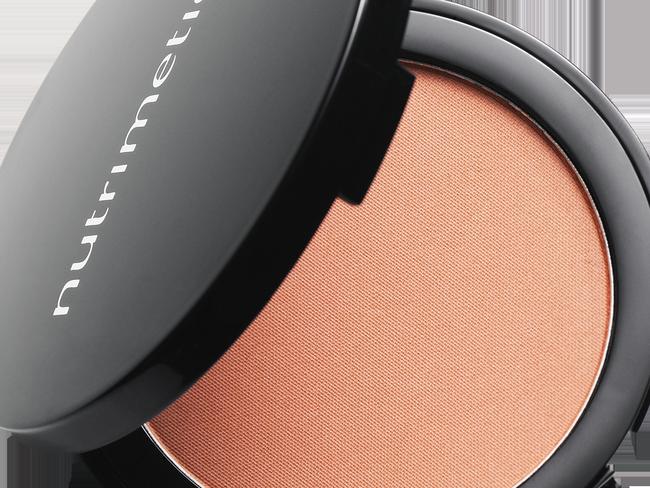
While based in Sydney, she’s practically an honorary Gold Coaster – and sits for the interview prior to a speaking engagement at Bond University, which is almost a second home for her family.
Her son was one of the first graduates at the private university, while her grandson is a current student. Imelda herself was no less than the Chancellor of Bond from 1999 to 2004.
“The Gold Coast is a very special place to us. It’s one of the best cities for entrepreneurs,” she says.
“There aren’t huge corporations here, people who come here come for the lifestyle and then they build a business around that – that’s why it’s such a centre for entrepreneurs and small business owners.
“When my son came here, it absolutely transformed him. Bond really developed him, he has the most creative business brain you can find.
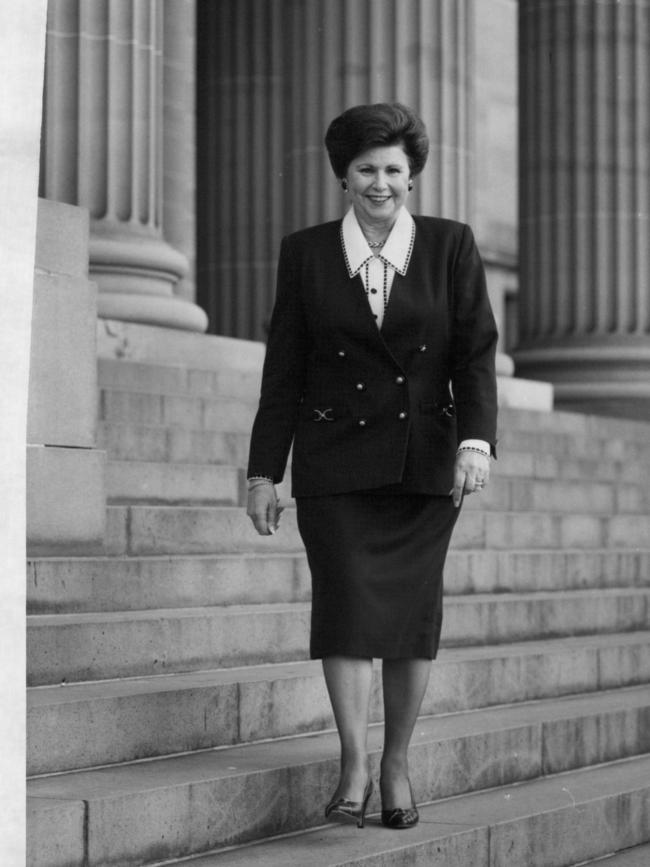
“I love giving back to a place that gave me so much.”
In fact, both Imelda’s sons are joint directors of the family’s Roche Group, whose property developments include Calypso Bay at Jacobs Well on the Gold Coast.
While she’s officially retired, Imelda is still heavily invested in not just the family business but her extended family of women in business.
OTHER NEWS:
Drug users caught on camera in suburban park
LNP blasts Minister’s ‘massive own goal’
Boy told to get into strangers’ car
Surprise arrivals in Gold Coast waters
Even more than Nutrimetics, it’s her life’s work, which is why, in 1995, she was awarded an Order of Australia in recognition of her services to business and commerce, women’s affairs and the community.
She was named one of the world’s 50 leading female entrepreneurs in 1997, and has two honorary doctorates.
She’s served on more than 30 boards and committees focusing on health, education and trade and represented both Prime Ministers Paul Keating and John Howard as an Australian delegate to APEC – she even has her portrait hanging in the National Portrait Gallery in Canberra.
But she’s less interested in her past highlights than current issues.
SUBSCRIBE TO THE BULLETIN: $5 A MONTH FOR THE FIRST THREE MONTHS
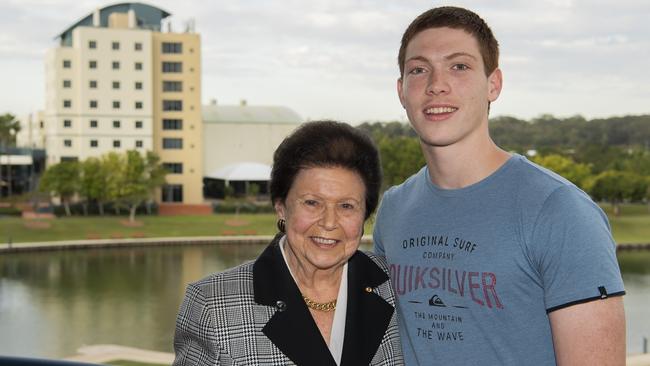
“So much has changed since I started in business back in the 1950s,” she says.
“I remember when Bill and I used to go to the bank, I was like wallpaper – no bank manager would ever condescend to talk to a woman.
“I believe things began to change when women started graduating from university and wanted opportunities. The men who could easily say no to their wives, just could not deny their daughters.
“These days, officially, women have it better. We can get our own loans, we cannot legally be discriminated against. My hope is that women don’t have to push themselves as hard as I did.
“Having said that, I think women need to remember that there are still rules to business that they need to play by. I am amazed by some of the clothes that women wear to business meetings.
“If you want to be taken seriously, you need to dress the part. You don’t see men showing up in Hawaiian shirts – so you need to make sure your cleavage is covered and your hemlines are decent.

“You don’t have to not be a woman – the most effective female leaders are those who embrace their feminine qualities. Use your communication skills, your listening skills, your empathy, to your advantage. It’s not about your feminine figure but your feminine nature.
“Look at (New Zealand Prime Minister) Jacinda Ardern, that is a leader who leads like a woman – and people respond to that because she is authentic.”
Imelda says both business and parenting has become more difficult over the past few decades.
She says dominating a market, as Nutrimetics once did in direct sales, is a much greater challenge now, as is the struggle for work/life balance.
“I do think we had a better business landscape, it’s incredibly fragmented these days.
“Even though women face fewer official barriers to business now, the changing dynamic of industries, combined with the complexities of parenting, is actually making life harder.
“Being a parent today is incredibly difficult. You really have to say ‘no’ a lot, and then when you do you get criticised. Young people today are much less resilient than the older generations.
SUBSCRIBE TO THE BULLETIN: $5 A MONTH FOR THE FIRST THREE MONTHS
“From the age of about eight, I used to look after my younger siblings because my mother would work from 6.30am to 7pm to be able to feed us. My older sister and I had to step up as carers. It was tough but it was the making of us. Not that kids need to do it tough like that, but challenges are what make you grow.
“It meant that when I was in business and I had my own children, I could follow my own path. There was plenty of criticism from my aunts when I would go away on business, but I just knew not to listen. When you’re resilient you can cop that and keep going.
“Plus, I always had my own mother to step in and help me with my children. It was a reversal of my childhood, she was such a huge support to me – we were a support to each other.
“I always said to the women who worked with me – and I say it still to any working mother – pay for all the help that you can get.
“Do your kids really care who cleans the floors? No, but they do care when they have a stressed-out, overworked mother. If you want to be in business, let someone else do the housework whenever you can afford it.”
However, when it comes to parental advice, despite having four children and 13 grandchildren, Imelda says she only offers it when asked – as a sign of respect.
“I gave a little speech at each of my children’s weddings, basically saying that I aimed to be the most perfect mother-in-law – I will never interfere but I’m always here if they need me,” she says.
“Nobody wants to be told how to run their lives, and because I don’t try to do that, I’m welcome in their lives. Everyone needs to create their own path.”
It’s a simple example of how Imelda is still a singular saleswoman, she earns the invitation without expecting it.
It’s one of the reasons she has been recognised by both sides of the political spectrum – and she is happy to return the respect.
“International politics is a bit of a joke at the moment, except it’s not funny.
“I think Australia is just so lucky to have a leader like Scott Morrison – he’s a centrist. Australians want to be free to get on with their lives, they don’t want drama.”
With an entrepreneurial empire born from a marriage and sold for the sake of the children, it’s clear that Imelda makes relationships her business.
And as her union with Bill comes up on its 60th anniversary, it’s yet another sign of her success.
“Bill and I have had a remarkable life together.
“He was truly ahead of his time to see me not just as his partner but his equal. He could see the value that I brought to the table and empowered me and that enabled me to empower other women.”
It’s a priceless legacy from a woman who redefines what it means to be one of the country’s richest women.

Add your comment to this story
To join the conversation, please log in. Don't have an account? Register
Join the conversation, you are commenting as Logout
‘Good luck with that’: Legendary developer’s stark warning
More than $5bn worth of developments are coming for the Gold Coast – but experts say it’s just a drop in the ocean of what’s needed. Read our special report on the city’s deepening housing crisis.
Why locking up damaged kids just won’t work
“Children are being placed back into abusive environments with no advocacy, ending up on the streets in sexploitation, criminal gangs, and juvenile justice systems because they do not have a voice,” writes Dr Cher McGillivray